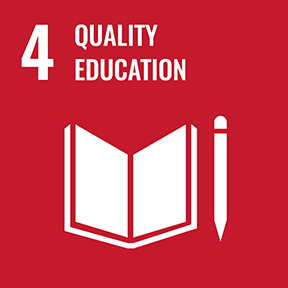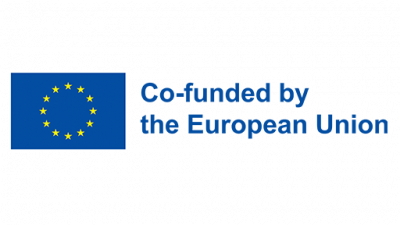Project
Pienet Osaamiskokonaisuudet: Innostu ja uudistu!
Project sponsors

Project results
Jyväskylä University of Applied Sciences (Jamk) acts as the responsible coordinator for the Work Package on Collaboration with Working Life in the project and participates in all project activities in cooperation with other higher education institutions. The tools developed in the project will be tested and implemented at Jamk in the design and delivery of micro-credentials.
Work Package 1: Collaboration with Working Life
Coordinated by Jamk (Jamk, TAMK, all project partners involved)
Action 1: Mapping and Engagement (Spring–Autumn 2025)
A national online survey will be conducted in cooperation with TAMK and possibly other 'Micro-Credentials' ESF projects. The aim is to gather views from higher education staff and working life partners in the social and healthcare sector on micro-credentials and current collaboration practices. The survey will especially focus on the capability of higher education staff to design micro-credentials and identify any development needs in this area.
The mapping will be deepened through interviews with higher education personnel and working life partners. In addition, the project team will attend professional events in the social and healthcare sector to interview and engage new employers in the project's development goals.
The initial mapping will also draw on national and international publications on micro-credentials, as well as practical examples of working-life collaboration from the EADTU and EURASHE networks in other European countries. A web-based report will be produced based on international recommendations.
Action 2: Deepening Collaboration and Developing the Service Process (Autumn 2025–Spring 2026)
The perspectives of those who responded to the initial mapping will be further explored through a qualitative Delphi-method survey conducted together with TAMK (involving multiple rounds of inquiry).
Development of service processes that enhance higher education institutions' training design capabilities will continue in cooperation with university staff, working life representatives, and Work Package 2.
Jamk and TAMK will facilitate innovation workshops using service design methods to further examine the capabilities of higher education staff and the readiness of working life partners for joint design processes of micro-credentials. The workshops will also serve to engage and connect the project's target groups.
Additionally, a larger hybrid working life forum will be organized in cooperation with TAMK and possibly other parallel projects, where the results from the project's first year will be shared and refined, and networking opportunities for target groups will be enabled.
Action 3: Creating the Operational Model (Autumn 2026)
Based on the project results, an operational model will be developed in collaboration with Work Package 2.
The model will outline the best practices for developing working-life-oriented micro-credentials in higher education. It will be developed using agile methods in cooperation with university staff and working life partners, and it will be tested and further developed throughout the project duration.
This process will also clearly highlight the development needs related to the competencies of higher education staff. A clear process description will form the basis for a model to support the planning of micro-credentials for all higher education institutions.
Action 4: Embedding the Operational Model and Project Conclusion (Spring 2027)
The operational model and recommendations for capability development will be presented together with TAMK to participating organizations and stakeholders. The project consortium will organize a national seminar where higher education and working life representatives will present how micro-credentials can address working life needs.
The operational model and best practices developed in the project will be embedded into permanent use in the working-life collaboration of higher education, in cooperation with parallel projects.
Finally, the consortium will contribute to the final report and recommendations. The project's outcomes will be analyzed against its objectives, and the development of higher education institutions' capabilities during the project will be described.
Measurable Results
Action 1:
-
Number of responses to the online survey
-
Survey results
-
Workshops and working life visits conducted and their feedback
-
Published report on international models of micro-credentials
Action 2:
-
Workshops conducted and their outcomes
-
Number of participants and results of the working life forum
Action 3:
-
Visual presentation of the operational model
-
Feedback on the model
Action 4:
-
Number of participants and results of the national seminar
-
Published operational model
